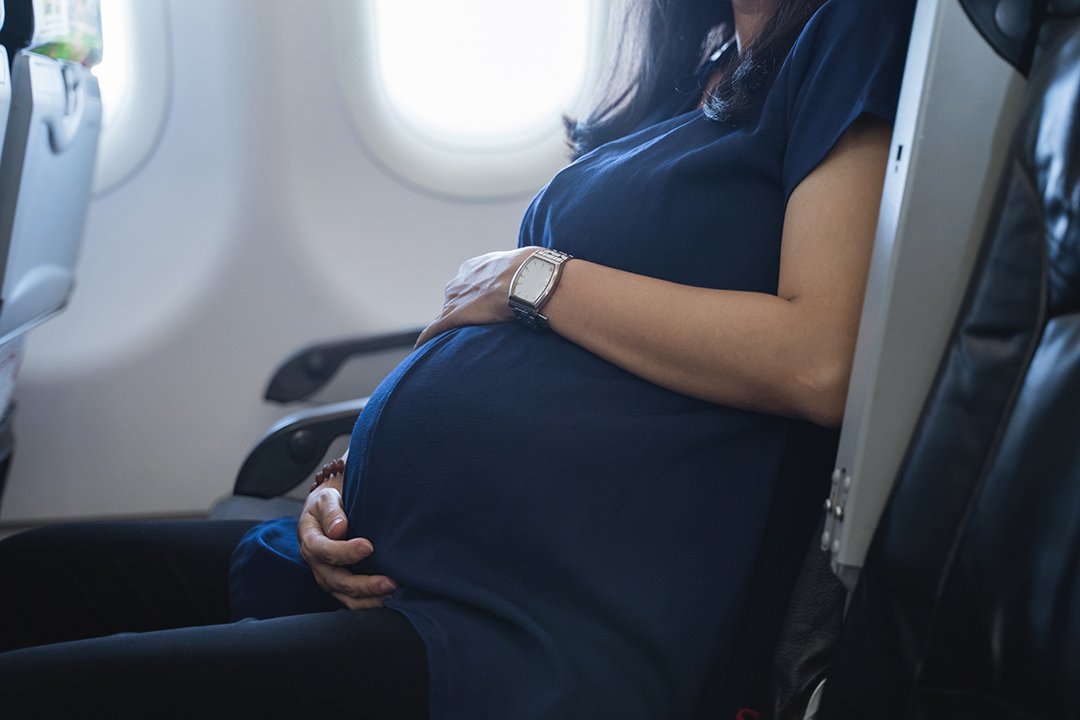Our air ambulance staff vs. commercial airline staff
Reading Time: 4 minutes
Table of contents
When we buy a plane ticket, we often begin fantasizing about the vacation that awaits us. Unfortunately, even before we arrive at our desired destination, this dream can quickly become a nightmare. Indeed, we do not give much thought to the health issues that may arise during a flight, and these risks are heightened for passengers who have pre-existing medical conditions. How should you handle a medical emergency in the middle of a flight? Who should you go to for first aid if you need it? Are there any solutions that could make your long-distance flight safer? We give you all of the information you need to make your dream a reality.
What are the potential medical complications that may occur on commercial planes?
Medical emergencies that occur during a flight can be classified as either health-related or injury-related. Minor health problems can range from dizziness to fainting spells and flight anxiety, whereas major incidents can include a severe allergic reaction or a heart attack. In contrast, injuries can range from hot drinks burns to more serious injuries sustained during onboard fights and even severe turbulence.
For a better understanding of the concept of "in-flight medical emergency", a study on the outcomes of medical emergencies on commercial airline flights explains that the cabin crew is frequently called upon to respond to common minor mid-flight health issues such as:
- Seizures;
- Nausea or vomiting;
- Respiratory problems;
- Minor cardiac symptoms;
- Light-headedness or fainting.
In comparison, the following are considered major and rare emergencies:
- Laceration;
- Cardiac arrest;
- Excruciating pain;
- Obstetrical or gynaecological symptoms.
Lacerations, heart attacks, and excruciating pain are risks for passengers with lung or heart problems, as well as those with sinus infections, ear infections, or who have recently received a cast. Similarly, women in their 36th week of pregnancy are especially vulnerable to unexpected health problems during a flight.

Is there a medical staff on commercial flights to handle emergencies?
Commercial airline flight attendants are trained to provide first aid and have access to basic supplies such as cold packs and bandages onboard. Indeed, the vast majority of minor incidents brought to the attention of cabin crew are successfully managed using over-the-counter medications, like mild analgesics or first aid measures such as reassurance.
It should be noted, however, that they are not paramedics and lack the necessary training and equipment to handle the most serious incidents. Flight attendants are not trained to perform cardiopulmonary resuscitation or use an external defibrillator. Some commercial airlines may also prohibit the use of these devices on their planes.
As a result, in the event of a medical emergency, these airlines must adhere to strict protocols so that the crew knows exactly what to do. For complex medical emergencies such as cardiac arrest, obstetric and gynaecologic problems, and strokes that require the use of medical supplies other than those intended for first aid or a doctor's advice from ground medical support, the plane will most likely be diverted and the passenger hospitalised.
Medical Escorts: Your solution
Although ground ambulance transport is less expensive than air ambulance transport, it is not always appropriate for a patient due to traffic and other incidents that could potentially lengthen the journey. Similarly, travelling without adequate medical assistance may result in health complications that commercial airline personnel cannot adequately address. For patients who meet commercial airline requirements, a medical escort is a safe and cost-effective alternative to both air and ground ambulances. Indeed, for patients in need of basic medical care, this service has proven to be an excellent mode of transportation.
Medical Repatriation UK's medical flight escort service was developed to enable medically stable patients who require assistance to travel on commercial flights safely and with peace of mind. It is the ideal solution for patients with special medical needs who are relocating closer to home, as well as wheelchair-bound passengers or seniors who are being relocated to a hospice that provides essential care.
The passenger in need of onboard medical care is escorted by one or two medical health professionals from their home, nursing home or hospital to their final destination using our commercial medical escort service. The medical escort will handle all airport logistics as well as provide medical assistance to the patient. They will provide them with the medical, sanitary, and personal care that they require to make their flight as safe and comfortable as possible.

Each medical escort on our team has many years of experience in the medical field, giving the patient peace of mind that if an emergency occurs, the flight escort will be able to respond appropriately. Bonus: our medical staff members are fluent in English, French, German, and other languages.
Medical Repatriation Uk’s air ambulances services: our solution to your problem
What if you become ill in Egypt? What if the local hospitals in Spain are unable to treat your injuries and you need extensive care in the United Kingdom? What if you are in the midst of a serious medical emergency in Mallorca and require repatriation to Birmingham?
When commercial flights and medical escorts are not an option, consider Medical Repatriation UK as your dependable air ambulance provider, offering world-class long-distance medical flights and all-inclusive services to those who require medical care while travelling. As a leader in the aeromedical industry, we have made it our mission to set the standard for safe and comfortable medical flights as well as quality care.
As a result, we plan your repatriation or evacuation with the necessary medical equipment and, more importantly, the health professionals who will care for you during your flight home or to a preferred hospital/clinic in a timely and safe manner.
To ensure your flight's safety and efficiency, our paramedics and nurses:
- are highly dedicated and skilled professionals;
- have received critical care practitioner training;
- can administer strong drugs in the middle of a flight;
- serve as an important link between the air ambulance and the ground teams;
- have experience working under extreme pressure and in high-performance medical units.
Similarly, our air ambulance doctors:
- can assess symptoms, diagnose conditions, and administer treatment;
- are all pre-hospital specialists with a variety of backgrounds, for example, neonatologist, paediatricians, geriatricians, anaesthesiologists, gynaecologists, obstetricians or surgeons.

Medical escorts can both be our paramedics/nurses and our specialist doctors, depending on the patient’s condition and request. They are available 24 hours a day, 7 days a week to travel with and prepare the patient for transportation as well as perform any necessary medical acts during a flight.
Do you have any additional questions?
Many of the most frequently asked questions about long-distance patient transfer to the UK are addressed in our FAQ.
Contact us right away for medical repatriation!
Please contact our 24-hour service at any time if you require additional information or a free non-binding quote. Our friendly and knowledgeable staff can be reached at:
- Telephone: +44 (0) 20 3608 0483
- Email: info@medical-repatriation.uk
- Our contact form